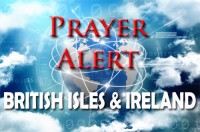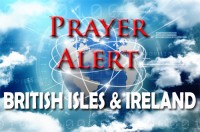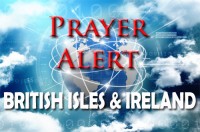Transgender girl bullied at school
The mother of an 11-year-old transgender girl who was bullied at school claims that the school has not done enough to stop the bullying. She said that five months of escalating bullying has had a ‘terrible effect’ on her daughter, who had been physically attacked several times and was regularly abused and insulted. A statement from the school confirmed that a ball-bearing (BB) gun had been fired at a pupil. It added: ‘The matter has been treated very seriously, and the pupil who fired the gun has been permanently excluded. We wish to send a message out to our community that this behaviour is completely unacceptable and will result in removal from our school. We have enlisted the support of a national organisation to help us further with our training of staff and pupils and support for our transgender pupils. We have met with the parents of the pupil to apologise and to see what we can do further as a school.’
A rural ‘resource’ church
‘Resource’ churches in the Church of England tend to be led by men in a city, but this month, the diocese of Southwell and Nottingham announced that the Rev’d Alison Jones would be leading one that could meet in a barn. She said that she has not heard of any other ‘resource’ church in a rural setting. ‘I do feel it is very new, in that there is not a model to look to,’ she said. ‘In some ways, it really excites me; but it’s also slightly daunting. The phrase that we keep coming back to is a sense of the need to listen and learn ... A big part of it is going to be building relationships with, and supporting, those who are leading rural churches.’ The church, supported by funding from the Church Commissioners, is part of the diocese’s strategy - ‘Growing disciples: wider, younger and deeper’ - which includes plans to develop 25 resource churches. It is envisaged that each church will have attendance of at least 150 people by 2023, and plant at least one new worshipping community.
Europe in 2017
The year 2017 could well be the hardest for Europe since WWII. The new US administration is likely to accept Crimea as a Russian territory if it gets enough in return. At least a cancellation of the sanctions against Russia has already been mentioned. There will be serious discussions in the EU if this happens, with incalculable consequences for the unity of the Union. Another danger for the EU in 2017 is the elections in Holland (March), France (May), and Germany (Sept). In all these countries the populists are strong. If the Front National succeeds in France and Marie le Pen wins the presidential election, that will be hugely difficult for the EU. If Angela Merkel loses her chancellorship, all might be lost. We can only pray and proclaim, ‘For Yours is the kingdom and the power and the glory, for ever and ever!’ Pray for the kingdom values in the political world; truth against falsehood, a sense of responsibility against egotism , and consideration against extortion.
Diplomats in uncharted waters in USA
European diplomats in Washington are relying on ‘strategic patience’ while they try to chart a new course with the White House. Ambassadors, academics and others have personally invested in a strong relationship between the EU and the USA. The relationship is built on a shared belief in European integration. The current version of the EU was established with a treaty signed in Maastricht on 7 February 1992: the anniversary was celebrated this week in Maastricht, New York and other cities. For the USA, the EU has provided a forum for a unified approach towards global issues. Its leaders have worked closely with US officials on trade, counter-terrorism, and sanctions against Russia. Now European officials are trying to come to terms with the new administration and its hostile attitude to the EU - and are wondering how the relationship between Washington and Brussels will evolve in this environment.











